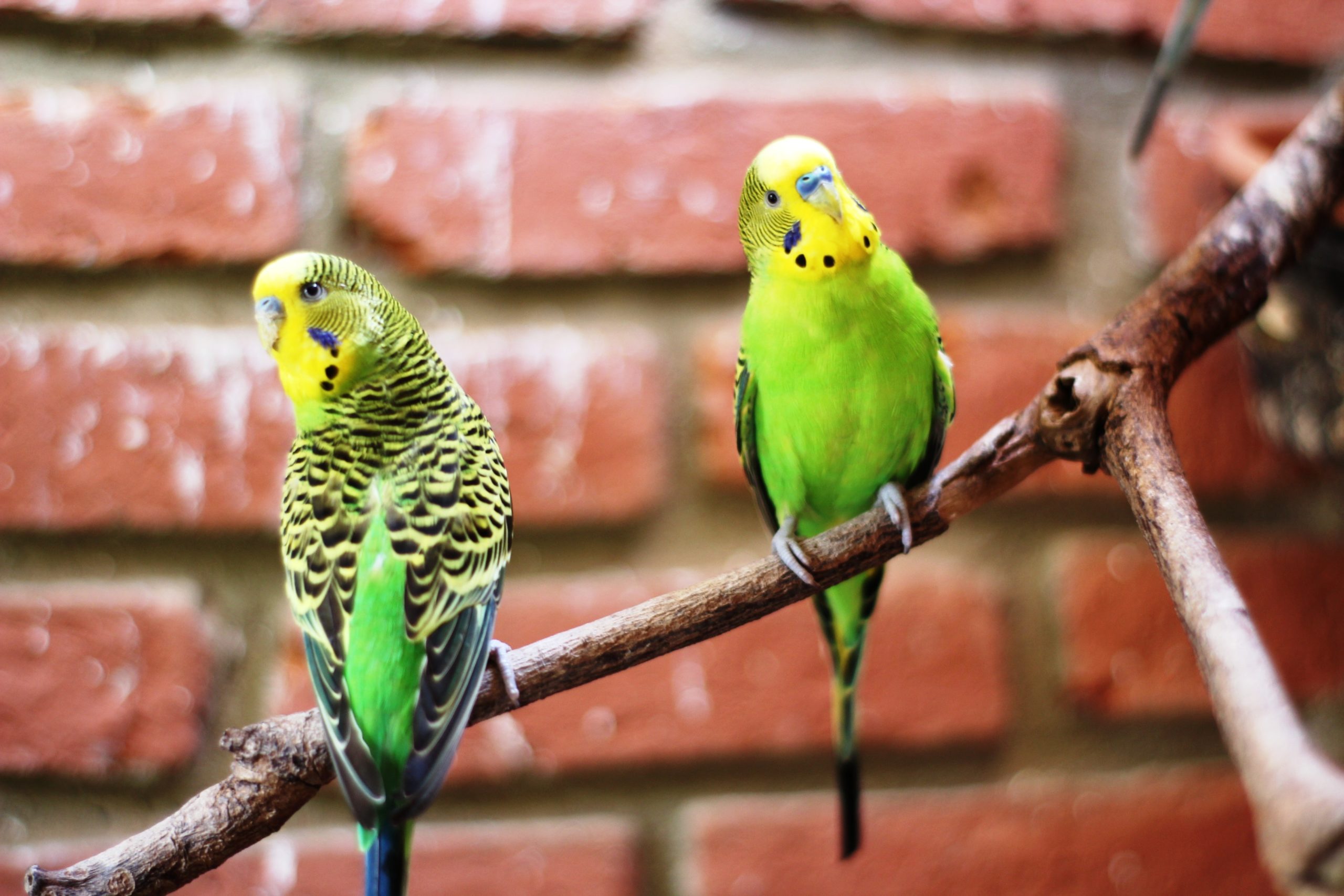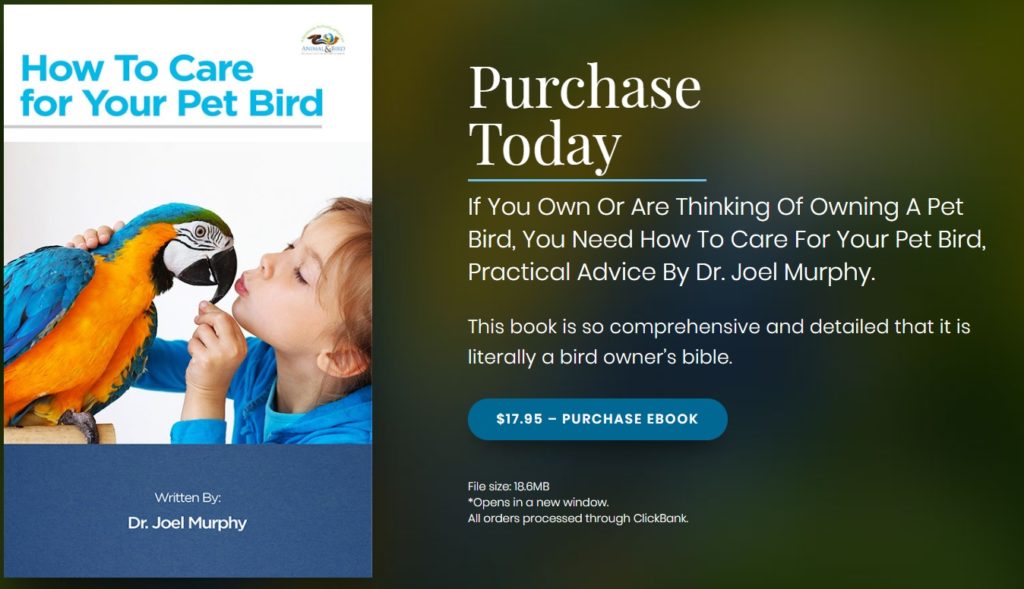Taking care of your Pet Bird is important. Pet birds are different than cats and dogs, but they are not any more difficult to keep healthy. So how do you take care of a pet bird?
1. It is important for your bird’s health to keep his environment clean. Water dishes should be washed daily with soap and hot water. The cage papers should be changed daily and the bottom of the cage should be washed thoroughly with soap as needed to remove all debris, rinsed thoroughly, then disinfected. A convenient disinfectant is a 1:32 dilution of bleach and water. Make sure to thoroughly rinse away all traces or disinfectant before you return your bird to his cage.
2. Don’t let your bird have contact with wild birds, they are the main carriers of diseases and infections.
3. Moderate their temperature. Do not put the bird cage where it is exposed to draughts as the birds can catch a cold ( and can suffer from hypothermia ), and they should be exposed to the sun no more than 1 – 2 hours per day as they can overheat.
4. Bath Your Bird. Birds are made for wind and rain. Regular baths or showers are important for the health of your bird’s feathers, skin, and sinuses. Some birds prefer baths, others prefer misting, and others prefer taking showers with their owners. Experiment with your bird, and find a solution that fits both your needs. Birds should be bathed or showered a minimum of three times a week, even in the winter months.
Taking Care of my Pet Bird Continued…
5. If you have other pet animals; a dog , a cat, first ensure that they do not display any aggressive behavior towards the birds and only then you can leave them in the same room together. Small children can also inadvertently hurt your bird, and child-bird interactions should be closely supervised.
6. Examine the bird cage for any protruding parts and objects that could injure them .
7. Trauma is one of the most common causes of death in companion birds. A flighted bird can fly into a window or a mirror;, out a door or window, into the toilet or a pot of boiling water, or into a ceiling fan. If your bird spends time out of its cage, we strongly recommend keeping his wings clipped. Trimming feathers hurts no more then a hair cut, and the clipped feathers will be replaced during the next molt cycle.
8. A very important factor for the good health of the birds is the proper and balanced feeding . Other than bird seed, they should get some fruit and vegetables, from which they will obtain some necessary vitamins . Another important element of the bird’s balanced diet is the proper supply with minerals . You can buy these from most animal/pet stores. birds like to put everything in their mouths. If given the chance, birds can swallow toxic items.
One of the most commonly ingested household toxins is lead. Sources of lead in the home include solder on lampshades or stereo equipment, old paint or paint on items from less developed countries (e.g. cages from Mexico), chipped ceramic items, linoleum, putty, costume jewelry, mini blinds, curtains weights, fishing sinkers, foil from the top of wine bottles, and stained or leaded glass. Lead toxicity can cause incordination, seizures, anemia, and kidney damage. If you think your bird has ingested a lead item, take him to an avian veterinarian immediately.
Overfeeding the birds with proteins of animal origin can be dangerous as it can cause gout (avian kidney disease) and lead to abnormal appetite .

9. Protect Your Bird from Airborne Toxins. Birds have a much more sensitive respiratory system than do humans. Certain airborne toxins that are relatively safe for humans can cause illness or even death in our feathered friends. Non-stick surfaces, such as those found on Teflon-coated cookware, drip pans, irons and self-cleaning ovens can emit fumes (often odorless) if allowed to over heat. Other sources of toxic fumes include spray pesticides, wet paints, rug cleaners, wood smoke, air fresheners, incense, scented candles, hair spray, perfume, hot-oil frying, cleaning products, and burning plastic. Cigarette smoke is also very toxic to birds. In general, any material that gives off strong fumes are a potential hazard to you pet. If you smell something strong, always move your bird to a well-ventilated area and then investigate the source.
10. Give them a comfortable living space. Try get the largest cage you can afford and have space for. Powder-coated and stainless steel cages are the safest for birds. Galvanized wire cages, which are coated with zinc, can make your bird sick. Ask your veterinarian which cage manufacturers he or she recommends. Wooden dowel perches of unvarying diameter can create painful worn spots on the bottom of your bird’s feet. Natural branch or perches of varying diameter are best.




